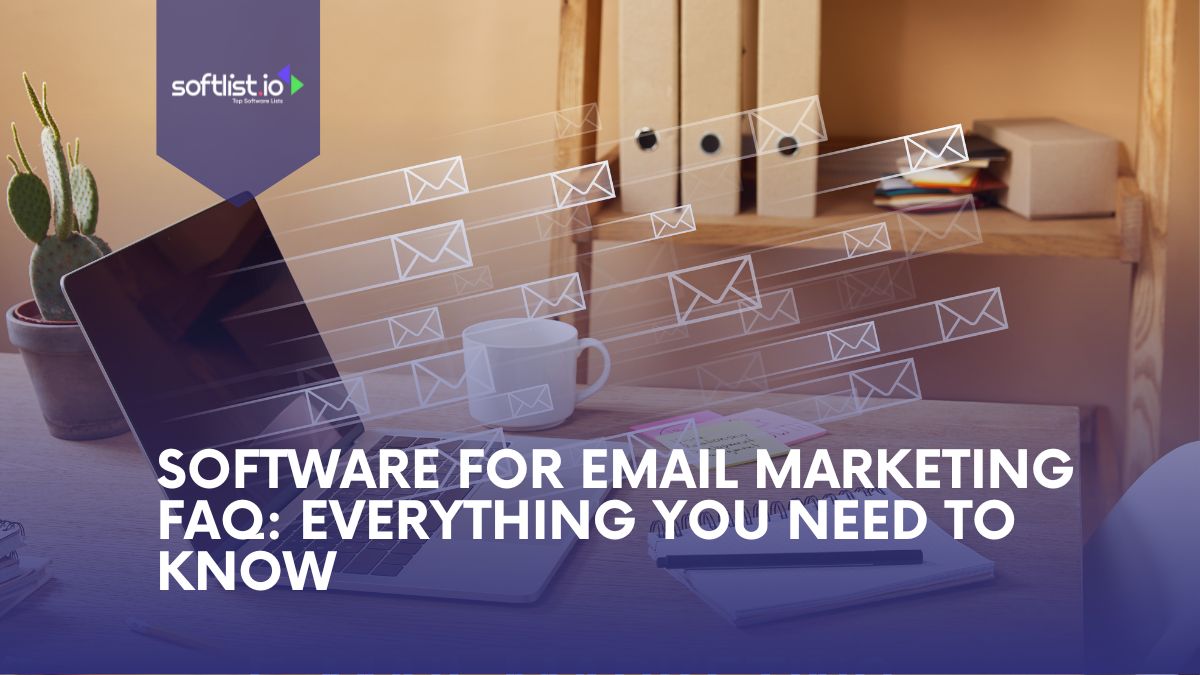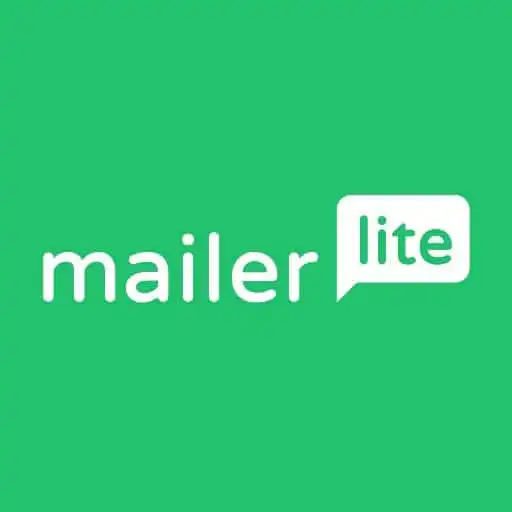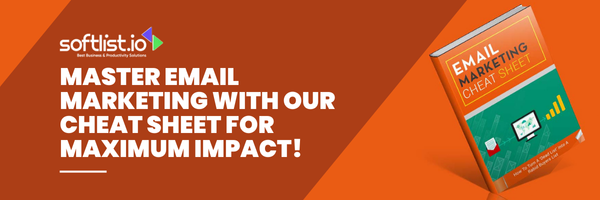Email marketing has become an essential aspect of digital marketing in recent years, with businesses relying heavily on it to promote their products and services, build brand awareness, and engage with their customers. Email marketing software is a valuable tool that enables businesses to streamline their email marketing efforts and achieve better results.
Key Takeaways
- The right email marketing software offers essential marketing features and automation tools to streamline campaigns and improve audience engagement.
- Selecting the best one for your business ensures you maximize efficiency, whether you’re managing thousands or millions of emails per month.
- Understanding how email marketing can take your outreach to the next level helps businesses leverage technology for better customer communication and higher conversions.
What Is an Email Marketing Software?

Email marketing software is a crucial digital marketing tool that helps businesses of all sizes effectively communicate with their customers and prospects through email. With the help of email marketing software, businesses can create and send targeted messages to their email lists, making it easier to connect with subscribers and drive engagement.
How Does an Email Marketing Software Work?
Email marketing software enables businesses to create, manage and send emails to their customers and leads. Generally, the program allows users to customize their emails with text, images, links, and more to create professional messaging for their target audience. The communications can then be sent using the platform’s email distribution system, which records statistics like read rates, click-through rates, and convert rates.
Several types of email marketing software are available, each with features and functionalities. Some of the common types of email marketing software include:
Standalone Email Marketing Platforms
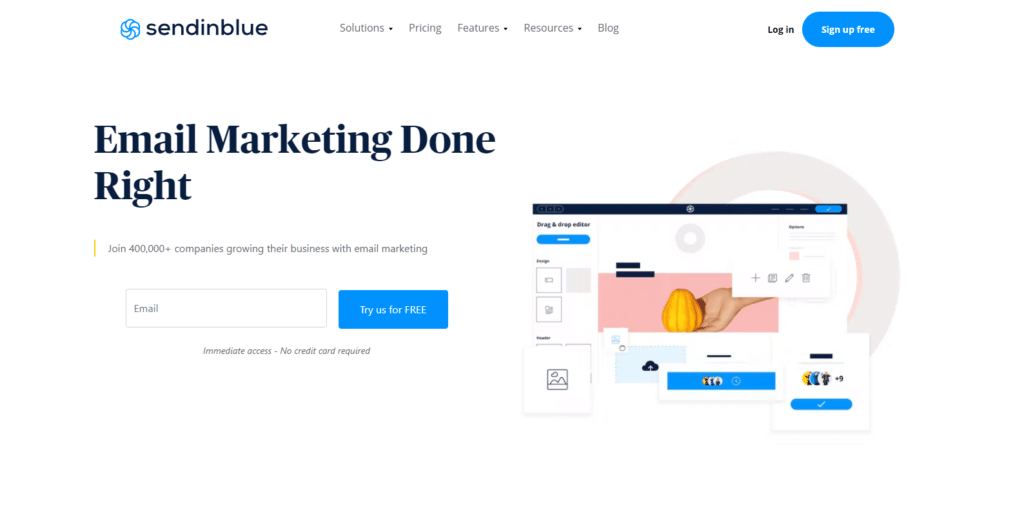
Standalone email marketing platforms are specifically designed for email marketing and offer comprehensive tools and features for creating, managing, and sending email campaigns. These platforms usually have a user-friendly interface and offer templates, automation, analytics, and list management capabilities.
Marketing Automation Platforms
Marketing automation platforms are more advanced and provide various marketing capabilities, including email marketing, social media, SMS, and more. In addition, these platforms often include features like lead scoring, lead nurturing, and automated workflows, making it easier for businesses to streamline their marketing efforts and generate leads.
CRM Platforms
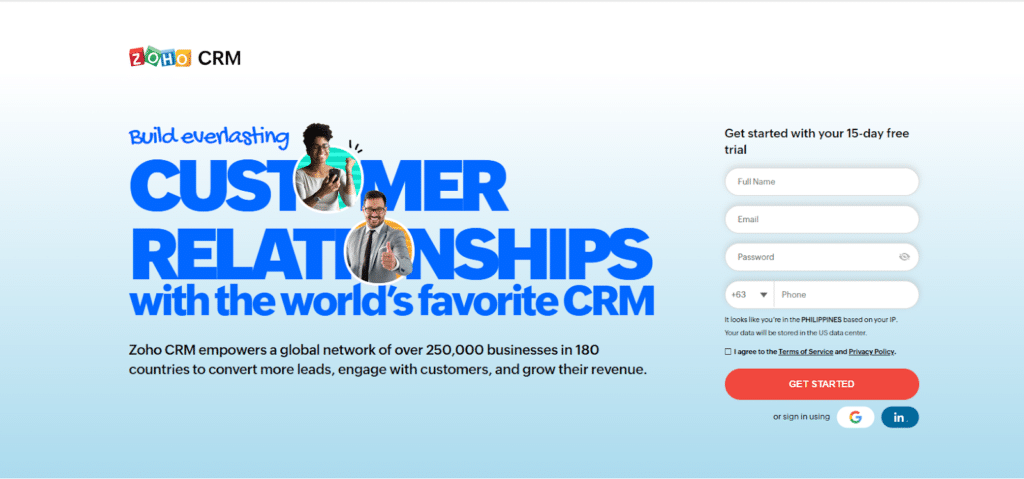
CRM platforms are designed to help businesses manage their customer data and interactions. They often include email marketing capabilities, allowing businesses to send targeted messages to their customers and prospects. These platforms may also provide features like contact management, sales automation, and customer service tools.
All-in-One Marketing Platforms
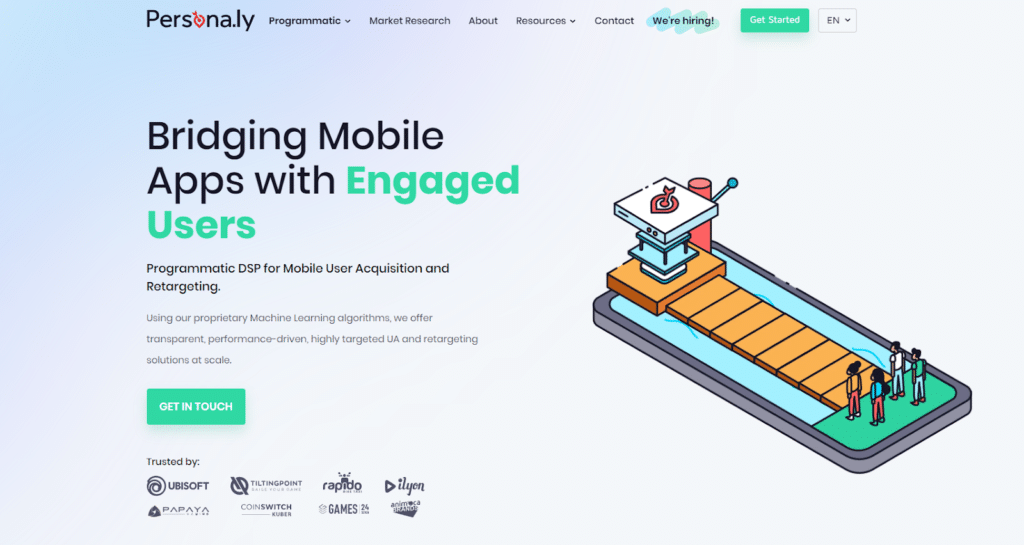
All-in-one marketing platforms offer a comprehensive suite of marketing tools, including email marketing, social media, advertising, and more. These platforms provide businesses with a complete marketing solution in one place, allowing them to manage all their marketing efforts from a single platform. All-in-one marketing platforms may be more expensive but offer a more streamlined approach.
What Are the Features of an Email Marketing Software?

When selecting email marketing software, it’s important to consider which features are most important for your business needs. Here are the key features to look for:
Automation and Scheduling
Automation is an important element of email marketing software that allows companies to deliver personalized communications to users based on their behavior or activities. Look for software that provides advanced automation capabilities such as triggered emails, drip campaigns, and behavioral segmentation. Additionally, scheduling features allow you to set the date and time for your emails to be sent, ensuring they reach your subscribers at the right time.
Segmentation and Personalization
Segmentation allows you to group subscribers based on specific criteria such as location, behavior, or interests and send targeted messages to each group. Personalization features allow you to customize your emails with subscriber information such as their name or location, making your messages more engaging and relevant.
A/B Testing and Optimization
A/B testing enables you to compare the performance of various variations of your email messages. Look for software that provides A/B testing capabilities for elements such as subject lines, content, and CTAs. Additionally, optimization features such as send-time optimization and content optimization can help improve the performance of your campaigns.
Integration with Other Platforms
Integration with other platforms such as CRM, social media, and e-commerce can help you streamline your marketing efforts and provide a more cohesive experience for your customers. Look for software that integrates with the platforms you’re already using.
Reporting and Analytics
You can monitor important indicators like response rates click-through rates, and convert rates with detailed data and analytics and improve your ads appropriately. Look for software that provides real-time reporting, custom reporting capabilities, and insights into subscriber behavior.
Mobile Optimization
In today’s world, more and more people are accessing their emails on their mobile devices. Therefore, choosing email marketing software optimized for mobile devices is important. This means that the software should be able to create responsive email templates that will adjust to the size of the user’s screen. In addition, it’s important to consider the email deliverability rate of the software you choose.
Email service providers have varying levels of deliverability, and you want to ensure that your emails are being delivered to your customers’ inboxes and not getting lost in their spam folders. This will ensure that your emails look professional and are easily readable, regardless of your customers’ devices, while increasing the chances of your emails being seen and acted upon.
Security and Compliance
Choosing email marketing software with powerful security features is important to protect your customer’s data. Look for software that includes encryption, two-factor login, and other security features to guarantee your customers’ information confidentiality. To prevent legal problems, you should also ensure that the program conforms to data security rules such as GDPR and the CAN-SPAM Act.
Support and Training Resources
Your ability to use the software successfully will determine the success of your email marketing efforts. Therefore, choosing email marketing software with good support and training resources is important. Look for software that offers training videos, webinars, and knowledge-base articles to help you learn how to use the software effectively. Additionally, look for software that offers 24/7 support so you can get help when needed.
How to Choose the Right Email Marketing Software

Choosing the right email marketing software can be daunting, but by considering a few key factors, businesses can ensure that they choose a platform that meets their needs and helps them achieve their marketing goals. Consider the following factors when selecting email marketing software:
Consideration of Business Needs and Goals
It’s important to evaluate your business’s unique needs and email marketing goals before selecting an email marketing software. For example, if your business needs to automate emails based on customer behavior, you’ll want to choose a platform with strong automation capabilities. However, knowing your company’s requirements and objectives will help you limit your choices and discover the best tool.
Evaluation of Pricing and Features
When evaluating email marketing software, it’s important to consider pricing and features. For example, some platforms charge based on the number of subscribers, while others charge a flat fee. You’ll also want to evaluate the features included in each plan, such as automation, segmentation, and customization options, to ensure that the platform meets your business needs and budget.
Reviews and Recommendations from Other Users
Reading evaluations and suggestions from other users can provide useful insights into the platform’s assets and flaws. Look for reviews from businesses similar in size and industry to yours to ensure you get relevant information.
Free Trials and Demos
Many email marketing software platforms offer free trials or demos, which allow businesses to test the platform and evaluate its features before committing to a purchase. This is a wonderful method to get a sense of the tool and see if it is a good match for your company.
By considering these factors, businesses can choose an email marketing software platform that meets their needs, helps them achieve their goals, and fits within their budget.
What are the Benefits of Using Email Marketing Software?

Email marketing software offers a range of benefits for businesses of all sizes. Here are the most important advantages of email marketing software:
Increased Reach and Engagement
Email marketing software enables businesses to reach a larger audience and engage with their subscribers in a more targeted and personalized way. By creating segmented email lists based on subscriber behavior, businesses can send targeted messages to specific groups of subscribers, resulting in higher engagement and conversion rates.
Automation and Efficiency
Email marketing software enables businesses to automate their email campaigns, saving time and increasing efficiency. For example, businesses can set up automated email sequences based on subscriber behavior, such as welcome emails, abandoned cart reminders, and post-purchase follow-up emails. Automation ensures that subscribers receive timely and relevant messages without manual intervention.
Cost Savings
Email marketing is comparatively cheap compared to other marketing platforms, and email marketing software makes it even more affordable. By automating campaigns and streamlining processes, businesses can save time and resources. Additionally, email marketing software allows businesses to track and optimize their campaigns, ensuring they get the best return on investment.
Improved Analytics and Reporting
Email marketing software provides businesses with detailed analytics and reporting, enabling them to track key metrics such as open rates, click-through rates, and conversion rates. This info can be used to enhance efforts and better outcomes over time. Additionally, email marketing software allows businesses to track subscriber behavior and preferences, enabling them to create more targeted and personalized campaigns.
Overall, email marketing software offers businesses a powerful tool for reaching and engaging with their audience while improving efficiency, saving costs, and providing valuable data and insights.
Best Email Marketing Software
| Product Image | Product Name / Primary Rating | Primary Button |
|---|---|---|
|
||
|
||
|
Conclusion
Email marketing software is a potent instrument that helps companies interact with their customers in a more focused and effective manner. By automating email marketing campaigns, segmenting lists, and providing detailed analytics, email marketing software helps businesses save time and resources while increasing engagement and conversion rates. With the right email marketing strategy in place, email marketing software can be a powerful tool in driving revenue and growth for your business.
Choosing the right email marketing software requires consideration of business needs and goals, pricing and features, and reviews and recommendations from other users. Whether you’re a new tiny company or a big corporation seeking to simplify your marketing efforts, email marketing software can provide various benefits and help you achieve your marketing objectives.
FAQs
What Is Mailchimp and How Does It Function as an Email Marketing Tool?
Mailchimp is a widely used email marketing tool that allows users to create, send, and manage email campaigns effectively. It offers features such as customizable templates, automation, and analytics to help marketers track the performance of their email marketing strategy.
Are There Any Free Email Marketing Options Available?
Yes, many email marketing services, including Mailchimp, offer free email marketing plans that allow users to send a limited number of emails and access basic features. This is ideal for small businesses or marketers just starting out.
How Can I Personalize My Newsletters Using an Email Marketing Service?
Personalizing newsletters can be achieved by utilizing the segmentation and targeting features of an email marketing service. By analyzing customer data, marketers can create tailored content that resonates with their audience, thereby enhancing engagement and ROI.
What Marketing Features Should I Look for in an Email Marketing Package?
When selecting an email marketing package, consider features such as automation, A/B testing, analytics, email templates, and integration capabilities with tools like HubSpot and Zapier. These features are essential for executing effective email marketing campaigns.
Can I Use Zapier with My Email Marketing Tool?
Yes, many email marketing tools, including Mailchimp and HubSpot, can be integrated with Zapier. This integration allows users to automate workflows, such as syncing email lists and triggering actions based on user interactions.
What Are the Best Practices for Creating Effective Email Marketing Campaigns?
Best practices for email marketing campaigns include segmenting your audience, crafting compelling subject lines, personalizing content, maintaining a consistent schedule, and analyzing performance metrics to continually optimize your email marketing strategy.
How Can a Free Email Marketing Tool Help Me Build My Brand?
A free email marketing tool can help build your brand by allowing you to engage with your audience regularly through newsletters and promotional emails. Consistent communication helps establish brand identity and fosters customer loyalty.
What Role Does CRM Software Play in Email Marketing?
CRM software enhances email marketing by managing customer relationships and providing valuable insights into customer behavior. This data enables marketers to tailor their email content and campaigns to better meet the needs of their audience.
How Can I Get Started Free with an Email Marketing Service?
To get started free with an email marketing service, choose a platform that offers a free plan, such as Mailchimp or HubSpot. Sign up for an account, explore the available features, and begin creating your email campaigns using their user-friendly tools.

